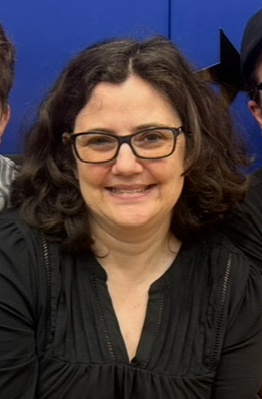Meaghan
I want to share my experience navigating workplace accommodations and maintaining a successful career as a healthcare professional as I became a person with a disability.
In 2004, I began working as a registered nurse for Melrose Wakefield Hospital (MWH), part of Tufts Medicine. In 2017, I was diagnosed with primary progressive multiple sclerosis. By 2020, I began to have difficulty walking, which marked a turning point in my professional life.
Challenges
As my physical abilities changed, I became concerned about how to continue my employment. Nursing is a physically demanding profession, and many aspects of the role, such as walking long distances through the hospital or assisting with patient transfers, were no longer possible for me. Despite these challenges, I wanted to remain productive and continue contributing to the organization. I wanted to use my years of clinical knowledge and leadership as a nursing supervisor in a new capacity.
Accommodation
MWH assisted me by offering me positions that maximized my contributions to the organization while accommodating my evolving mobility needs.
MWH recognized my strong leadership skills and my recent completion of a Master of Science in Nursing (MSN) with a focus on leadership. I was offered a Clinical Manager role that did not involve physical demands. The organization valued my contributions as a leader and supported my continued success.
As a Clinical Manager, I worked closely with the Risk Management team. I later became a Senior Risk Manager, a role that valued my clinical expertise while allowing additional accommodations. My direct supervisor maintained an open and ongoing dialogue regarding any accommodation I needed. In 2022, when I began using a wheelchair, MWH installed a remote-control door opener to ensure I could access the work suite independently. I was also given the opportunity to work from home, which I now do full time.

Meaghan’s Advice
For persons with disabilities:
“The workforce needs people with disabilities - we bring valuable skills, resilience, and a unique perspective. Don’t be afraid to pursue employment. You have so much to offer, and accommodations are available to maximize your access to employment.”
For employers:
"People with disabilities often have higher job retention rates than those without disabilities, contributing to workforce stability and reduced turnover. Organizations that hire people with disabilities are viewed positively by the public, enhancing their reputation and brand loyalty. People with disabilities have much to offer an organization, such as diverse perspectives, problem-solving skills, and resilience. By creating an inclusive workforce, employers can engage a talented and often underrepresented segment of the workforce!"
Disability Inclusion
Tufts Medicine is a proud member of the Work Without Limits Business Network, which provides valuable resources such as disability inclusion consulting and disability etiquette training for staff, which received extremely positive feedback.
In 2023, my supervisor encouraged me to join the Tufts Medicine project team, Disability Justice: Ready and Able. This team collaborates with Work Without Limits to advance disability inclusion and aims to position Tufts Medicine as an employer of choice for individuals with disabilities.
My Goal: I want to continue to be employed, advocate for others navigating similar challenges, and share my story as a testament to what’s possible. I’m proud to remain in my current role, and I plan to stay until I am ready to retire!
